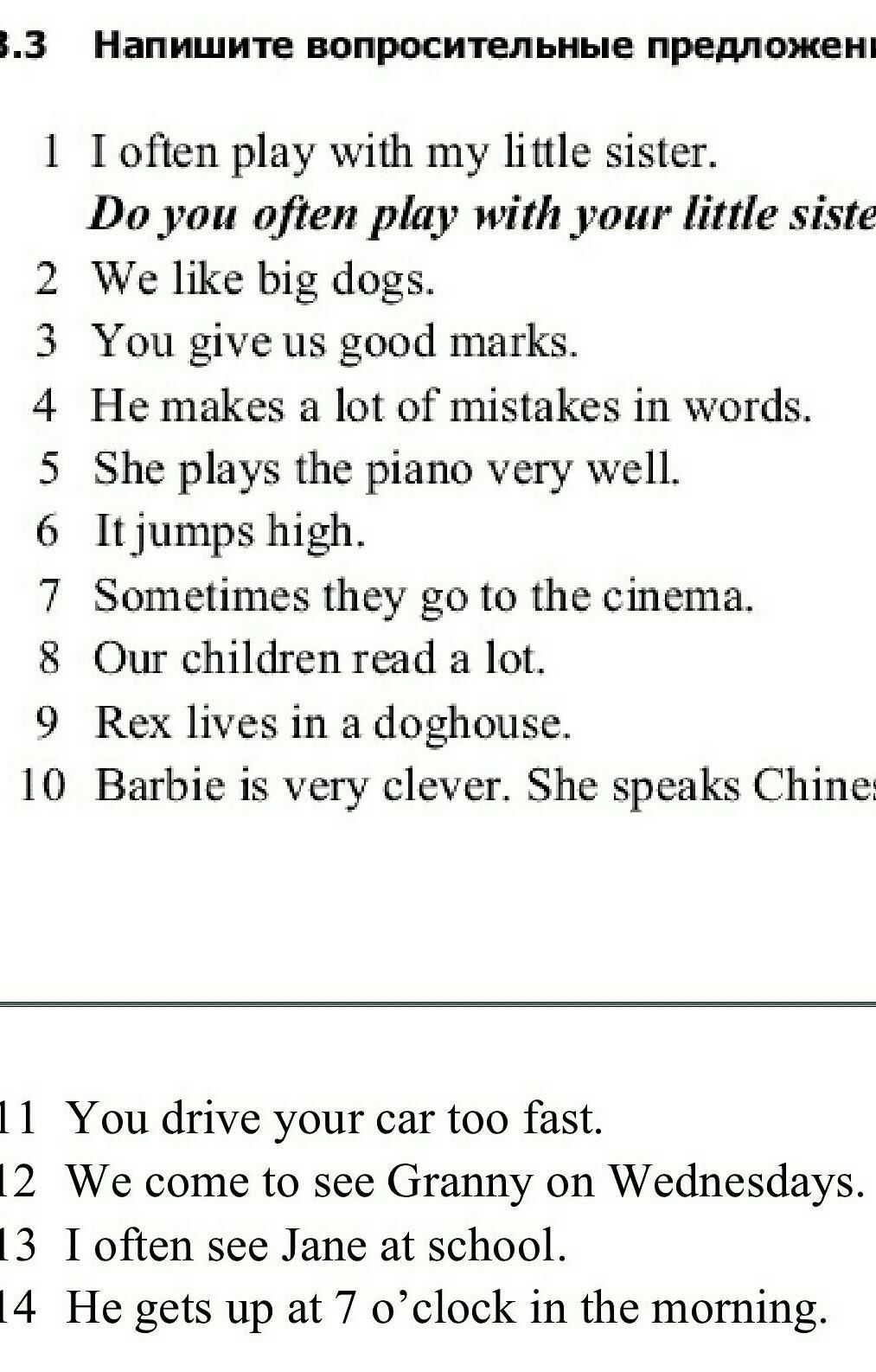Пожалуйстаааааааааааа, если не сделаю , меня она убьет ......

Ответы
2.We like big dogs .
Do you like big dogs?
3.You give us good marks .
Do I give you good marks ?
4.He makes a lot of mistakes in works.
Does he make a lot of mistakes in works?
5.She plays the piano very well.
Does she play the piano very well ?
6. It jumps high ?
Does it jump high ?
7.Sometimes they go to the cinema .
Do they sometimes go to the cinema?
8.Our children read a lot.
Do our children read a lot ?
9.Rex lives in a doghouse .
Does Rex live in a doghouse?
10.Barbie is very clever.She speaks Chinese.
Is Barbie very clever? Does she speak Chinese?
11.You drive your car too fast.
Do you drive your car too fast ?
12.We come to see Granny on Wednesdays.
Do we come to see Granny on Wednesdays?
13.I often see Janet at school.
Do I often see Janet at school?
14.He gets up at 7 o' clock in the morning.
Does he get up at 7 o'clock in the morning?
Образование вопросительной формы Present Simple :
Вопросительные предложения в английском языке в Present Simple образуются с помощью вспомогательного глагола do/does(для 3-ьего лица ед.числа) который употребляется только со смысловыми глаголами. Порядок слов в таких предложениях следующий:
1. Вспомогательный глагол 2. Подлежащее 3. Основной глагол 4. Дополнение 5. Обстоятельство:
Do you want to go to the cinema in the evening?
Если в предложении стоит модальный глагол, например, can - мочь, или глагол-связка to be, то сам модальный глагол и глагол to be выходят на первое место.
Can you swim well?
Are you a good swimmer?
Глагол to be на русский язык переводится как “быть, находиться”. В Present Simple у него три формы - am/is/are. В английском языке он может быть как смысловым глаголом, так и глаголом-связкой.
The book is on the table.
The weather is bad.